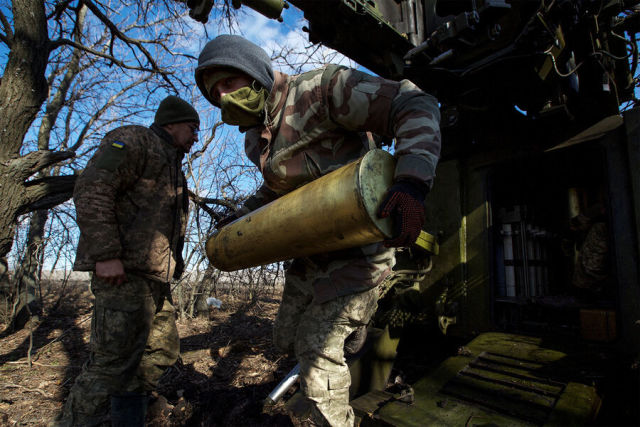London announced that it would supply depleted uranium ammunition to Kiev The United Kingdom, as part of the military assistance provided to Ukraine, intends to send depleted uranium shells to the Armed Forces of Ukraine.
This was announced by the Deputy Minister of Defense of the kingdom Annabel Goldie. According to experts, such ammunition, although it cannot be considered a nuclear weapon or a dirty bomb, but it poses a certain danger. "Newspaper.Ru" found out what exactly.
The UK intends to supply Ukraine with shells containing depleted uranium. This is stated in the response of Deputy Defense Minister Annabel Goldie to a request from a member of the House of Lords, Baron Hilton.
Hilton asked the military department whether the ammunition that the United Kingdom sends to Kiev contains depleted uranium.
Military analyst, retired Colonel Viktor Litovkin, in an interview with Lenta.ru He said that Ukraine's use of depleted uranium ammunition could lead to both radioactive contamination of the soil and an increase in oncological diseases among the population.
In his opinion, such shells will be used by Ukraine to strike at the DPR, LPR, Kherson and Zaporozhye regions, and they will not reach the territory of Central Russia. At the same time, he stressed that Moscow does not use depleted uranium ammunition in its military.
"We are fighting with maximum protection of the Ukrainian population, we do not strike at the housing stock and civilians," the military expert added.
Depleted uranium consists of more than 99% of the isotope uranium-238. This metal is a by-product of the production of isotopes of uranium-234 and uranium-235, which are used in nuclear power and for the production of nuclear weapons. At the same time, depleted uranium is even less radioactive than natural uranium ore (by about 40%). Its half-life is 4.5 billion years.
At the same time, the metal has an extremely high density: about 2.5 times more than iron, and only 16% less than osmium and iridium - the heaviest metals of the periodic table. Due to this property, depleted uranium is actively used, including for the manufacture of armor-piercing sub-caliber ammunition. Shells with cores made of this metal have a very high armor-piercing effect and lead to significant damage beyond the barrier.
Ammunition with depleted uranium cores is in service with many countries: the United States, Great Britain, Russia, Germany, France, Israel. They are used as shells for tanks, armor-piercing guns.
There is no consensus on the consequences of using depleted uranium ammunition. Since this is a fairly new type of weapon, there is no document in the UN restricting or prohibiting its use. Meanwhile, the 1980 Convention on the Physical Protection of Nuclear Material classifies depleted uranium as category II nuclear materials, for which special storage and transportation rules apply.
A number of experts are sure that despite the low radioactivity, the use of depleted uranium ammunition causes contamination of the area and hereditary diseases. The United Kingdom, the United States and other NATO countries consider these versions unproven.
Experts interviewed by RBC in January 2023 concluded that comparing depleted uranium ammunition with a dirty bomb is incorrect due to the very low radioactive background.
According to Vasily Kashin, director of the HSE Center for Integrated European and International Studies, shells with depleted uranium cores can legally be regarded as "a kind of subspecies of radioactive weapons."
Mikhail Kotlyar

